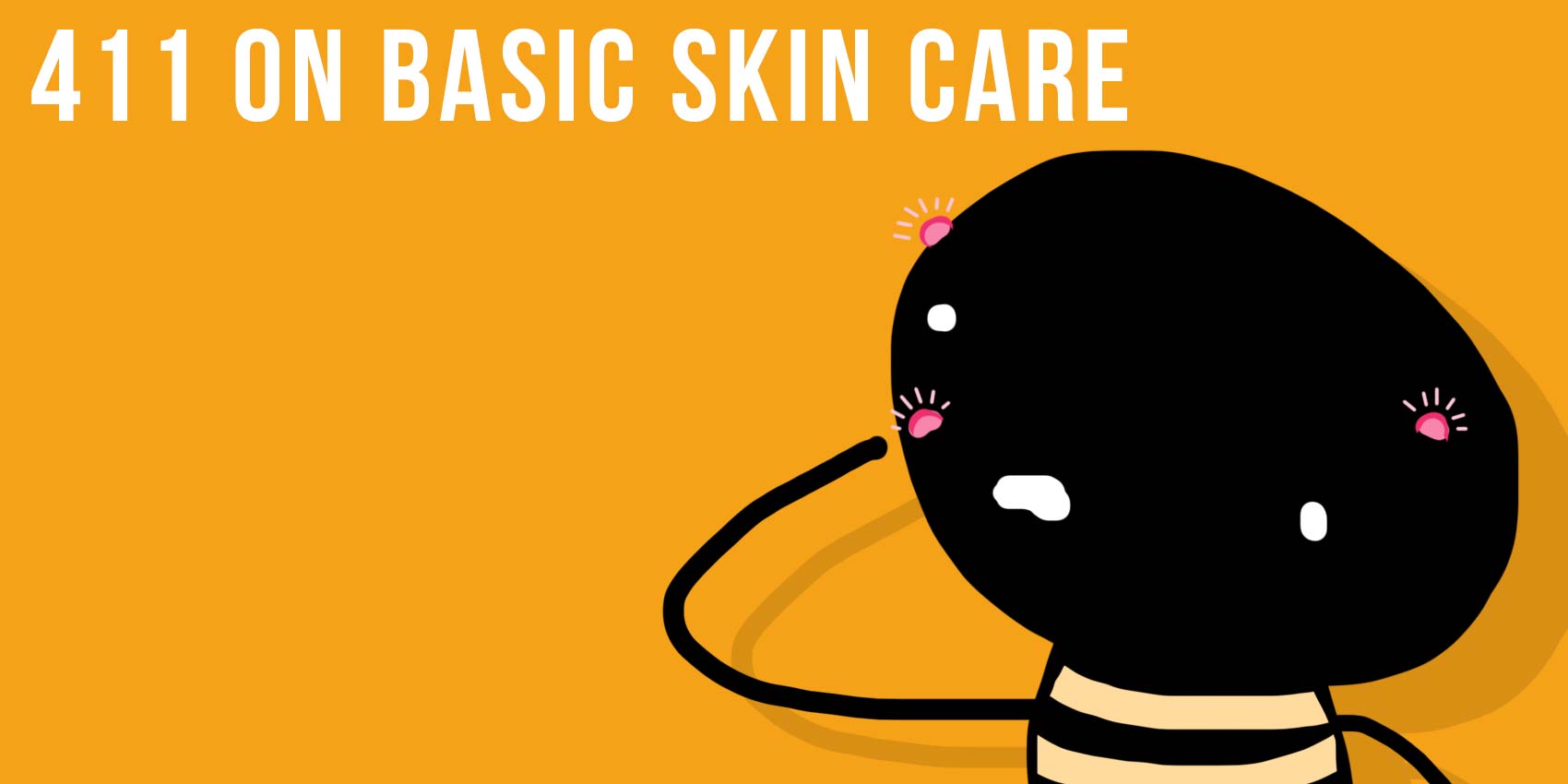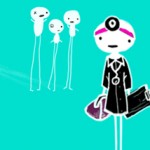14 Sep 411 on basic skin care

ACNE!!!!
Good grief, as if there isn’t enough to stress about in the teen years!! Now you also have to worry about acne? Well, don’t. Because worrying about it only adds to the problem and, just as important, a good skin care routine can help a lot!

DID YOU KNOW? A pimple starts when sebum (an oil) gets trapped in your pores. And, the added hormones of puberty can cause an overproduction of sebum and then, voila! Pimple planet!
What is ‘good skin care’?
- Wash your face twice a day with a mild cleanser. Do NOT scrub or over-wash your face, as it can cause your skin to be irritated and/or dry.
- Avoid touching your face. Most people touch their face quite a lot during the day. In fact research estimates that people thought their faces 15 times an hour. This can spread bacteria (not to mention germs!) which can cause your pores to become inflamed and irritated. (Source: https://www.ncbi.nlm.nih.gov/pubmed?term=nicas%20347)
- Keep your cell phone clean! Your cell phone collects sebum and dirt from your face and then… reapplies it on your face! Why is the face not a good place? because your nose, eyes and mouth are three primary paths where germs can enter your body. (Ears, cuts, abrasions and your private parts are other entry points.)
- Don’t pop pimples!! Or pick them!!! Doing so can cause further infection and even scarring!.
- If you wear makeup, remove it at night. Choose make up that is “noncomedogenic” or “nonacnegenic.”
- If you shave, be careful. Go lightly and take your time to avoid nicking a blemish.
- If you are concerned about acne, see a dermatologist. They can help design a skin care program that is right for you if you need more specialized care.

DID YOU KNOW? The T-ZONE is the area of your forehead, nose and chin that is prone to pimples because of the oil producing glands located there.
SUN exposure:
Getting sun is important for your body to produce Vitamin D, especially the immune boosting vitamin D3. Try to absorb about 15 minutes of sun each day so your body can make this important vitamin. But remember, too much sun can damage the skin and cause pre-mature aging as well as cancer. To decrease your risk of skin damage:
- Apply sunscreen everyday, at least SPF 15.

DID YOU KNOW? What does SPF mean? Sun Protection Factor. What does the number mean? SPF is a measure of how well a sunscreen will protect skin from UVB rays, the kind of radiation that causes sunburn, damages skin, and can contribute to skin cancer.
The number indicates how long you can stay in the sun without getting burned—an SPF of 15 means you can stay in the sun 15 times longer than you normally could without burning, thus the higher the number the better the protection, but just how long you can stay out without getting burned will depend on your skin type and the strength of the sun. For example, let’s say you can stay in the sun for ten minutes on a scorching day without getting burned because that’s just the kind of skin you have. Apply that SPF 15 and now you can enjoy 150 minutes outside before getting burned. Of course, it would wise and is recommended that you reapply sunblock every 2-3 hours, even if you are not sweating!
(Source: https://news.psu.edu/story/141338/2010/06/01/research/probing-question-what-does-spf-rating-sunscreen-mean)
- Choose a sunscreen that protects you from UVA and UVB rays.
- Peak rays are from 10-4. Avoid them if you can.
- Reapply sunscreen after swimming (even if your sunscreen is waterproof) and every three hours, more if you are around reflective surfaces like snow or water.
- Read your medication bottles. Some medications can cause you to be super sensitive to the sun and thus burn quickly, no matter your SPF.
COLD SORES
Cold sores are blisters on the lips caused by a type of herpes virus which means… they are contagious. Plus once you get the virus, it stays in your body, meaning you will be prone to cold sores throughout your life. To avoid getting cold sores, try not to share lip products, toothbrushes and drinks with people who might have a cold sore.
The trick here is that your friend might have herpes but not show any signs of a cold sore outbreak and yet still be contagious! Stay on the safe side, don’t share your stuff that touches your lips. And, yes, kissing is definitely a way that you share your lips. Be careful.The cold sores are extremely painful and no fun to handle. They are contagious even before they appear on the lips, so if you get them, be courteous and don’t share lip touching products or drinks.
ECZEMA:
Eczema is a a dry skin condition that causes an itchy red rash. Harsh detergents and soap tend to irritate it while regular applications of a good, fragrance-free moisturizer can help. If you have eczema, check with your doctor for the best way to treat it.
WARTS:
What are they? They look like a large pimple without a head and are not as red, they are skin colored. Most important, they are contagious so be careful not to pick or scratch them, because you can spread them to yourself and others. Warts are a type of skin infection caused by the human papilloma virus, not frogs. Check in with your doctor if you have them, as they can be removed.




Post Question:
Of all the stuff going on with your skin, which of the above conditions concern you the most? What can you do about it?
Answer the post question here
What's being said